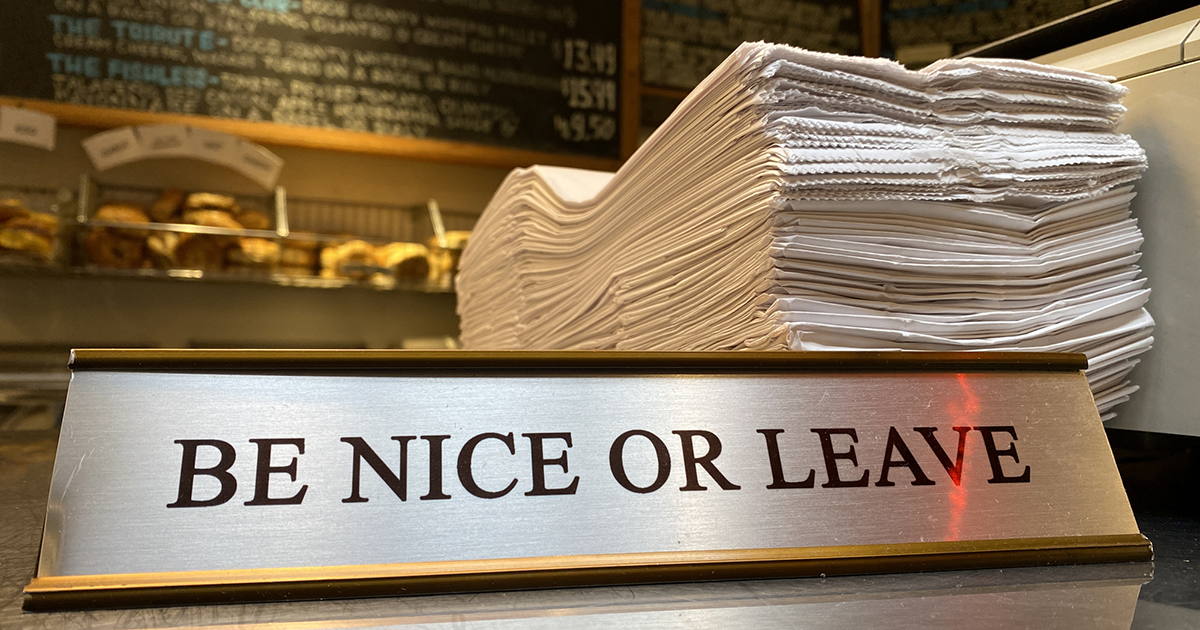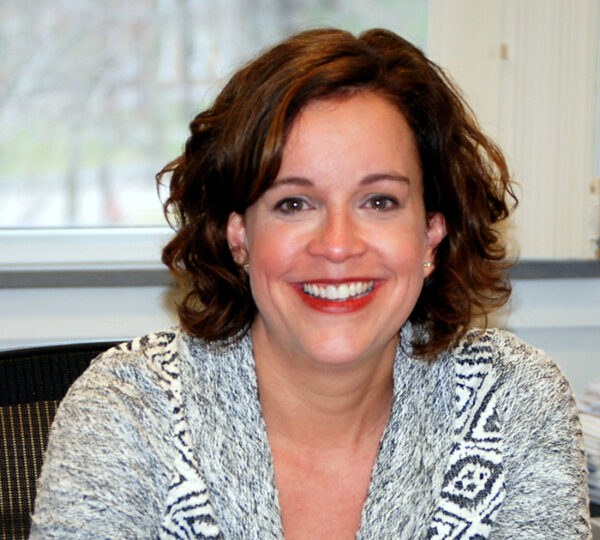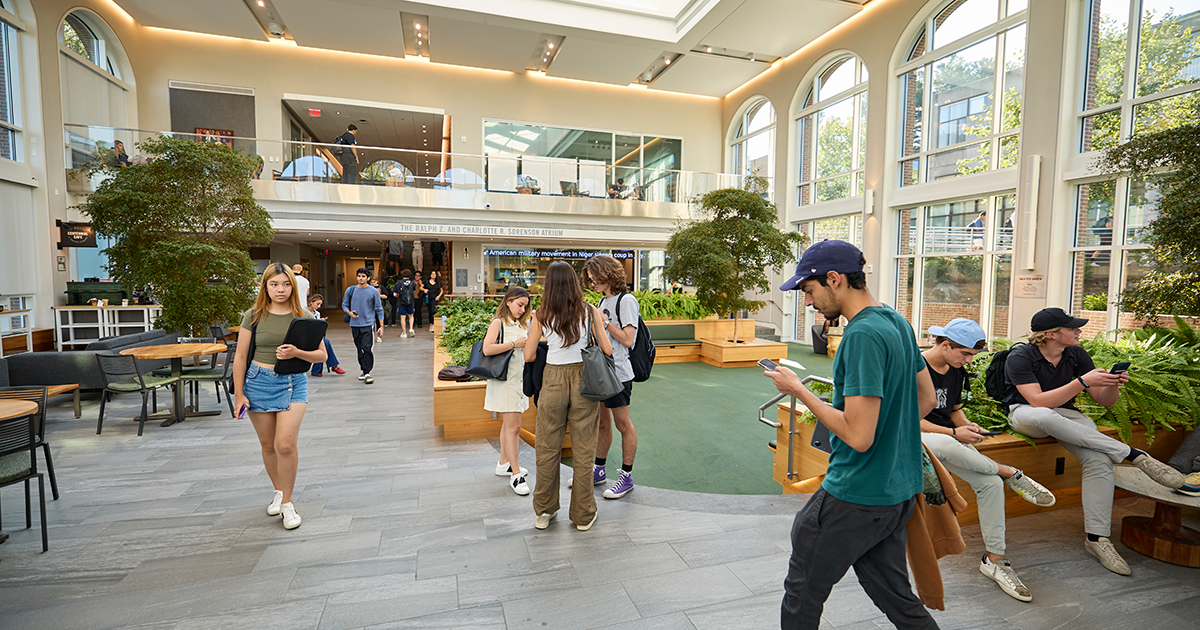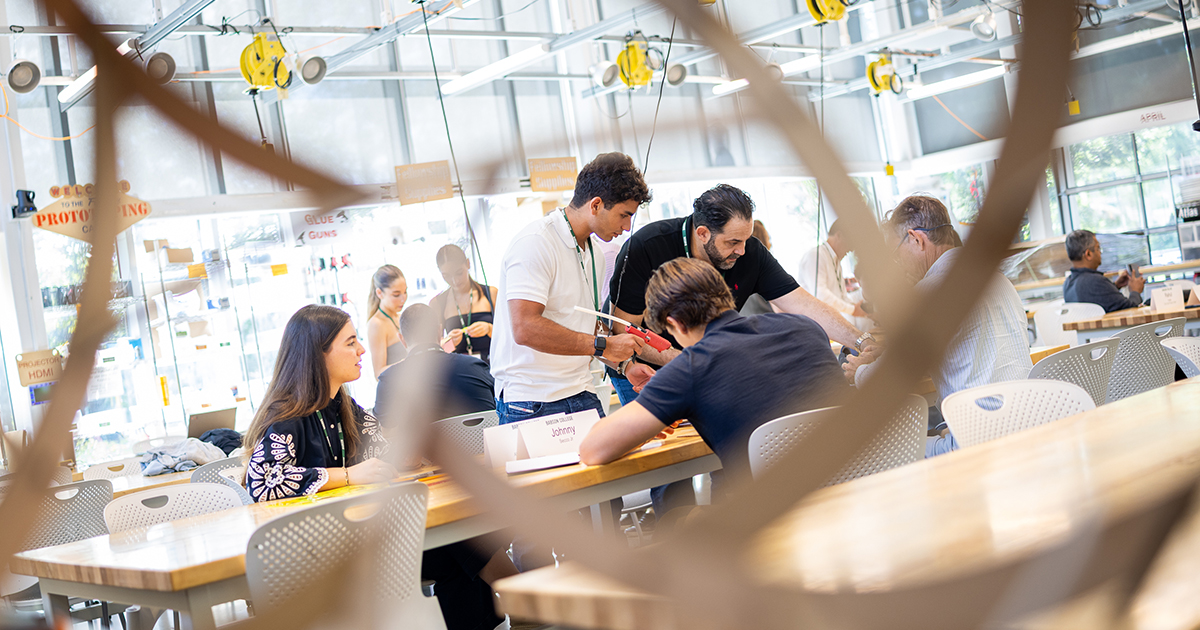Babson Study Reveals the Power of Customer Kindness

As Babson College Marketing Professor Lauren Beitelspacher stopped into her local farmer’s market—the type stocked with gourmet goodies such as pumpkin blossom honey and house-made smoked beets—she saw a sign asking customers, “Please be kind to our employees.”
“I thought, ‘If a place like this is telling people to be kind, what is going on out there in the world?’ ” Beitelspacher said. Her experience, combined with growing evidence showing that misbehaving customers are taking a toll on front-line employees and driving worker turnover, led Beitelspacher to a new research project studying customer kindness.
“There’s a ton of research about what happens when customers are mean to retail and service employees, but there’s no research about what happens when customers are kind,” Beitelspacher said.
Beitelspacher and co-researchers Carissa L. Kim, assistant professor of marketing and professional sales at James Madison University, and Mert Tokman, Kenneth R. Bartee endowed professor at James Madison University, introduce the concept of “customer kindness,” defined as acts of appreciation, consideration, empathy, and patience that customers extend to front-line employees (FLEs)—the baristas, servers, nurses, and salespeople who are often the face of organizations.
Beitelspacher, who also serves as the associate dean of faculty research, found that even the smallest gestures of kindness can trigger a positive feedback loop that benefits both employees and customers.
“Front-line workers are used to dealing with stress and, unfortunately, rudeness,” Beitelspacher, Kim, and Tokman found in the study. “What we found is that when customers show kindness, it motivates employees to provide even better service, increases their job satisfaction, and reduces the likelihood that they’ll leave their jobs.”
A New Take on Customer Behavior

The study comes amid plenty of reports of bad customer behavior. A recent industry survey found that more than 53% of public-facing workers have encountered customers who were verbally abusive, threatening, or otherwise unruly. More than one-third of FLEs have been required to stay in a situation where they felt physically unsafe, leaving 81% feeling burned out. The survey, released by Perceptyx earlier this year, was based on data from more than 21,000 employees in health care, food service, education, retail, transportation, and more.
Beitelspacher, the Ken and Nancy Major Romanzi senior term chair in marketing, worked with Kim and Tokman to conduct a multimethod study drawing on in-depth interviews, survey data, and field experiments. Interviews with service workers revealed five main ways customers show kindness: appreciation, consideration, empathy, friendliness, and patience.
For example, a simple “thank you” or a smile from a customer was described as motivating employees to go “the extra mile.”
Small Gestures, Big Impact
Building on those insights, Beitelspacher, Kim, and Tokman developed the first scale to measure customer kindness, confirming that it has real, measurable effects. Employees who experienced more kindness from customers reported higher levels of job satisfaction and customer orientation and were less likely to consider quitting.
The research, funded by the Tariq Farid Franchise Institute, also tested how organizations might encourage kindness. In one field experiment, servers at a restaurant wore buttons reminding customers of their humanity—through names or fun facts about themselves. Customers responded by showing more patience, and employees reported feeling more valued.
“Organizations often focus on preventing bad customer behavior, like banning alcohol on flights,” Beitelspacher explained. “But there’s enormous potential in creating conditions where kindness is the norm not the exception.”
Building a Culture of Kindness
The findings come at a critical time for service industries facing high turnover and burnout. According to one industry report, more than half of hospitality managers said burnout caused an employee to quit. Beitelspacher’s research suggests that fostering kindness could be a powerful retention tool—and a way to build stronger, more resilient businesses.
As she notes, kindness is contagious: “When customers show empathy and patience, employees not only reciprocate but often pass that positivity on to other customers. It creates a cycle of kindness that benefits everyone.”




